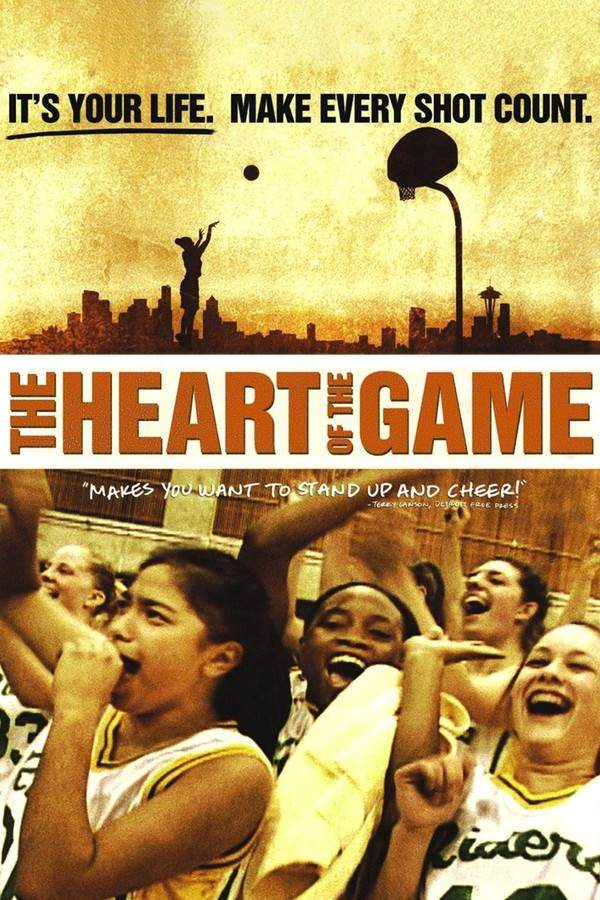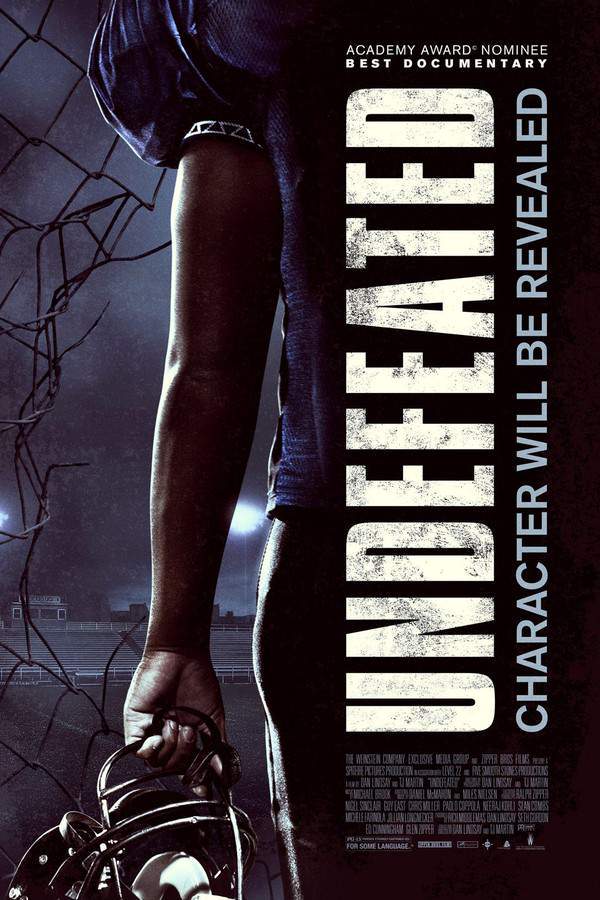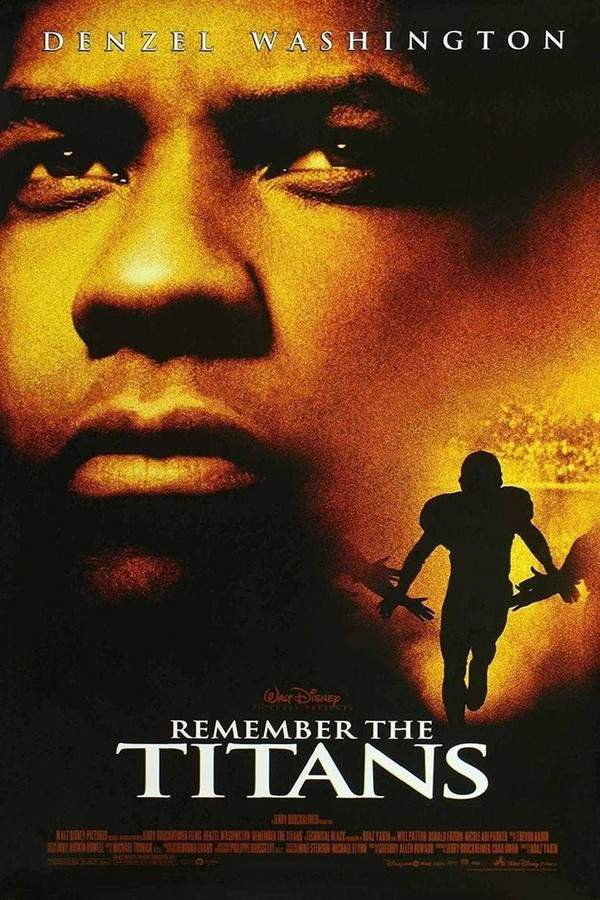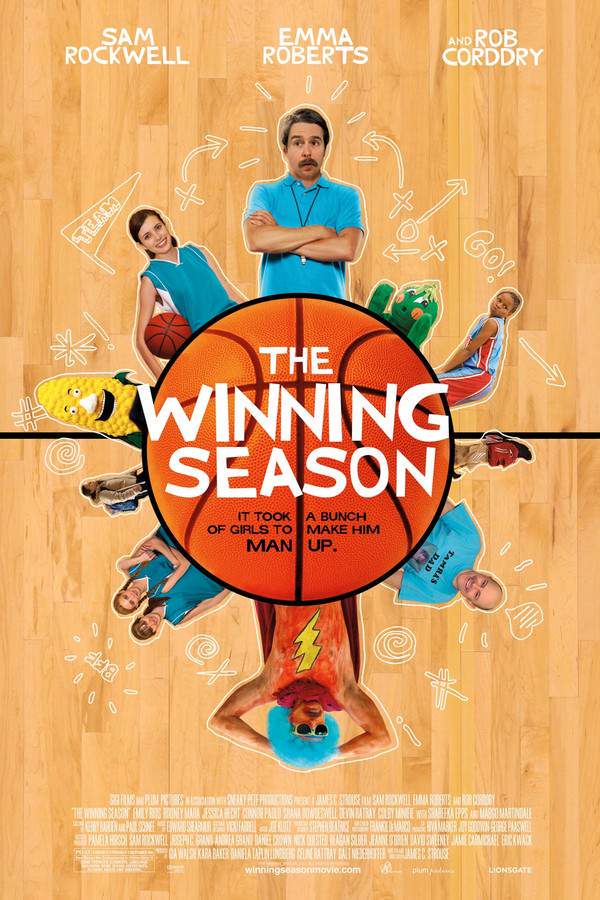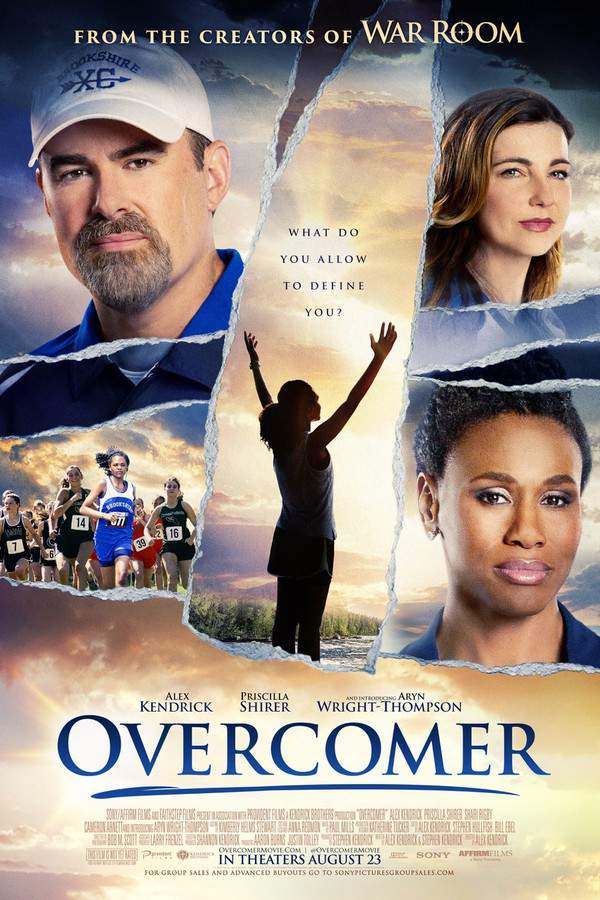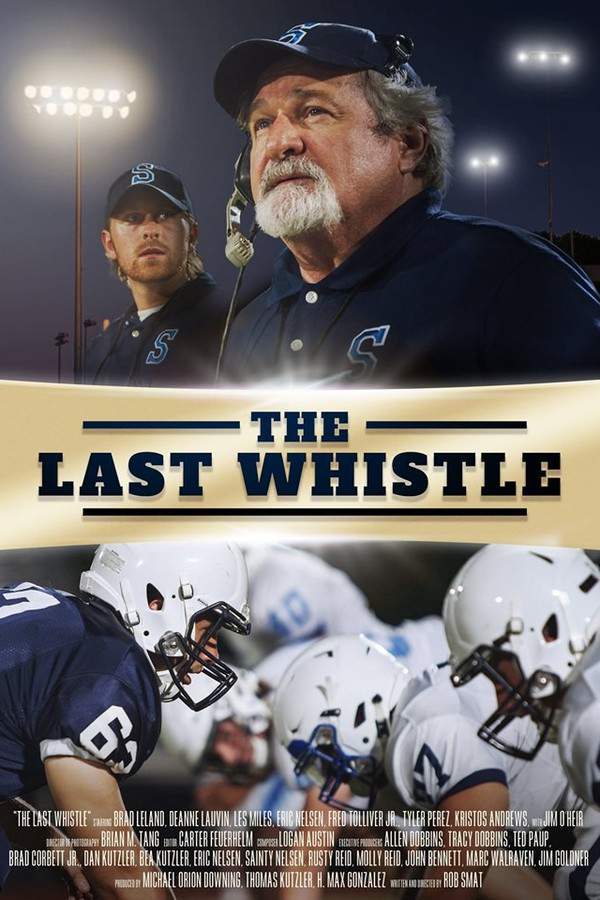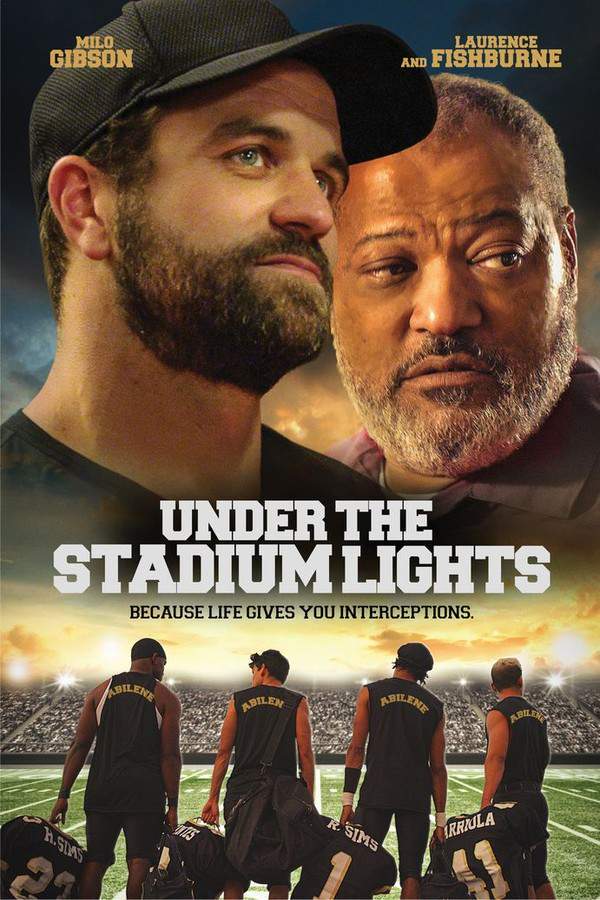When the Game Stands Tall 2014
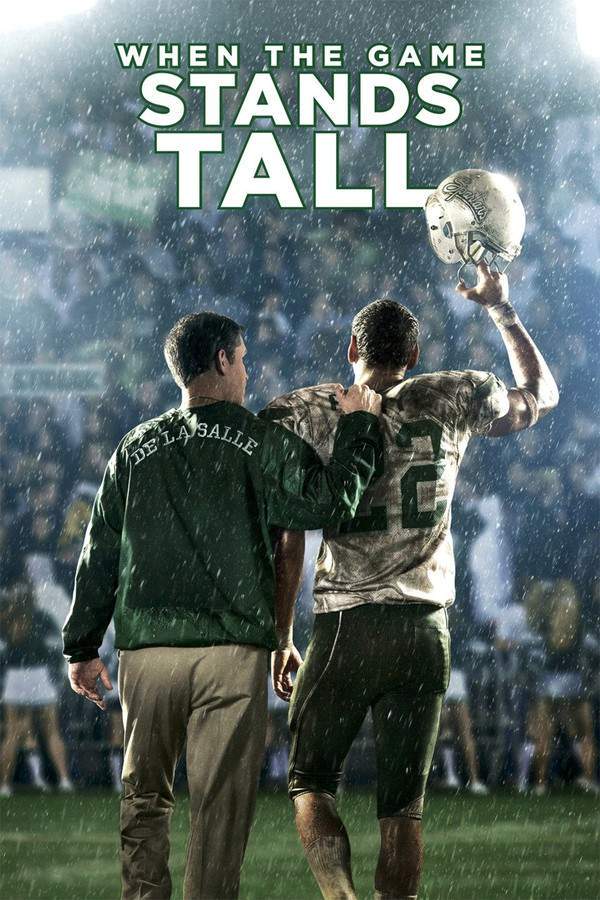
This inspiring true story follows Coach Bob Ladouceur and his De La Salle High School football team as they achieve an unprecedented 151-game winning streak over a 12-year period. Driven by a commitment to purpose and significance, the team experiences a period of remarkable success. However, when faced with unexpected adversity, the Spartans must find a way to rebuild trust and commitment within the team, confronting personal losses and ultimately striving to emerge stronger than before.
Does When the Game Stands Tall have end credit scenes?
No!
When the Game Stands Tall does not have end credit scenes. You can leave when the credits roll.
Meet the Full Cast and Actors of When the Game Stands Tall
Explore the complete cast of When the Game Stands Tall, including both lead and supporting actors. Learn who plays each character, discover their past roles and achievements, and find out what makes this ensemble cast stand out in the world of film and television.
External Links and Streaming Options
Discover where to watch When the Game Stands Tall online, including streaming platforms, rental options, and official sources. Compare reviews, ratings, and in-depth movie information across sites like IMDb, TMDb, Wikipedia or Rotten Tomatoes.
Ratings and Reviews for When the Game Stands Tall
See how When the Game Stands Tall is rated across major platforms like IMDb, Metacritic, and TMDb. Compare audience scores and critic reviews to understand where When the Game Stands Tall stands among top-rated movies in its genre.

41
Metascore
7.1
User Score


21%
TOMATOMETER

72%
User Score

6.6 /10
IMDb Rating

67
%
User Score

3.0
From 23 fan ratings

4.65/5
From 37 fan ratings
Take the Ultimate When the Game Stands Tall Movie Quiz
Challenge your knowledge of When the Game Stands Tall with this fun and interactive movie quiz. Test yourself on key plot points, iconic characters, hidden details, and memorable moments to see how well you really know the film.
When the Game Stands Tall Quiz: Test your knowledge on the inspiring true story of De La Salle High School's legendary football team and their extraordinary journey.
What is the name of De La Salle High School's football team?
Spartans
Trojans
Bulldogs
Warriors
Show hint
Full Plot Summary and Ending Explained for When the Game Stands Tall
Read the complete plot summary of When the Game Stands Tall, including all major events, twists, and the full ending explained in detail. Explore key characters, themes, hidden meanings, and everything you need to understand the story from beginning to end.
This film explores the remarkable journey of the De La Salle High School Spartans, who set a stunning record with a 150-game winning streak over an 11-year span, surpassing both the NFL and NCAA records. The story unfolds in 2003 as the Spartans prepare to face their league rivals, Pittsburg High School. Before the critical match, Coach Bob Ladouceur (Jim Caviezel) inspires his team with a powerful pep talk, emphasizing that their focus should not be on the streak itself but on their unity as a family. He insists that true dedication means giving a perfect effort, regardless of the outcome. Each senior player shares personal goals on their “perfect-goal cards,” setting their intentions for not just the game but life ahead.
As tensions rise among junior members during the game, they ultimately emerge victorious with a score of 28-0, extending their streak to 151 wins. Meanwhile, Coach Ladouceur disregards lucrative college coaching offers, much to the worry of his wife, Bev (Laura Dern). Despite her concerns that he should at least consider the options, he believes his coaching style is needed more by local underprivileged kids than by college prospects.
In a district meeting, rival coaches accuse De La Salle of unfairly selecting talented players. Coach Ladouceur counters this by highlighting the struggles of many players, some of whom commute long distances just to receive a quality education and play football. His assistant, Terry Eidson (Michael Chiklis), encourages him to arrange a game against the Long Beach Poly, the number one team in California.
The film also chronicles the lives of two standout players, Cam Colvin and T.K. Kelly, who hail from a poverty-stricken neighborhood. Their friendship is tested as Cam deals with the impending loss of his mother and the difficult changes ahead. Coach Ladouceur reassures him that the team is his family, where love and support extend beyond blood ties. However, personal struggles come to a head when Coach Ladouceur suffers a stroke, leading to a necessary break from coaching. The team, devastated by the news, rallies around him, but the loss of camaraderie and focus reflects in their performance.
After an emotional return to coaching, the team suffers setbacks, including the heartbreaking loss of T.K., which leaves everyone reeling. Coach Ladouceur grapples with the weight of loss, questioning the unfairness of it all while encouraging his players to lean on each other during tough times. As they prepare for a decisive game against Long Beach Poly, the team confronts their deepest fears and insecurities, realizing that their strength lies in their brotherhood.
The climactic match against Long Beach is a thrilling spectacle: televised nationally, it showcases just how much they’ve grown as a team. They fight hard against a formidable opponent, and through perseverance and unity, the Spartans achieve a victorious comeback, securing their win and preserving their legacy.
As the season culminates, Ryan, a player close to breaking the state touchdown record, redefines his priorities, choosing the team’s spirit over personal accolades in the final moments of the championship game. They win, celebrating not just the victory but also the bond formed through shared trials and triumphs.
The film concludes with a poignant note that Coach Ladouceur declined a prestigious coaching job at Stanford, choosing instead to continue leading his beloved team. Moments from the real players and coaches serve as a testament to the enduring impact of this story upon their lives. The heartfelt message promoting dedication, family, and community resonates throughout, making it not just a sports film, but a narrative rich in human connection.
Uncover the Details: Timeline, Characters, Themes, and Beyond!

Coming soon on iOS and Android
The Plot Explained Mobile App
From blockbusters to hidden gems — dive into movie stories anytime, anywhere. Save your favorites, discover plots faster, and never miss a twist again.
Sign up to be the first to know when we launch. Your email stays private — always.
Watch Trailers, Clips & Behind-the-Scenes for When the Game Stands Tall
Watch official trailers, exclusive clips, cast interviews, and behind-the-scenes footage from When the Game Stands Tall. Dive deeper into the making of the film, its standout moments, and key production insights.
When the Game Stands Tall Themes and Keywords
Discover the central themes, ideas, and keywords that define the movie’s story, tone, and message. Analyze the film’s deeper meanings, genre influences, and recurring concepts.
When the Game Stands Tall Other Names and Titles
Explore the various alternative titles, translations, and other names used for When the Game Stands Tall across different regions and languages. Understand how the film is marketed and recognized worldwide.
Similar Movies To When the Game Stands Tall You Should Know About
Browse a curated list of movies similar in genre, tone, characters, or story structure. Discover new titles like the one you're watching, perfect for fans of related plots, vibes, or cinematic styles.
Quick Links: Summary, Cast, Ratings, More

What's After the Movie?
Not sure whether to stay after the credits? Find out!
Explore Our Movie Platform
New Movie Releases (2025)
Famous Movie Actors
Top Film Production Studios
Movie Plot Summaries & Endings
Major Movie Awards & Winners
Best Concert Films & Music Documentaries
Movie Collections and Curated Lists
© 2025 What's After the Movie. All rights reserved.
























